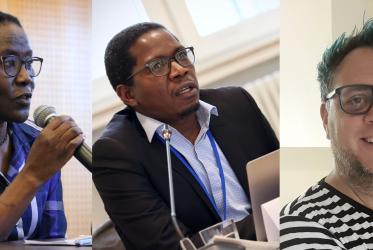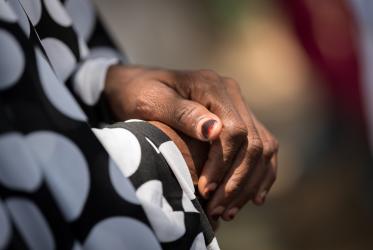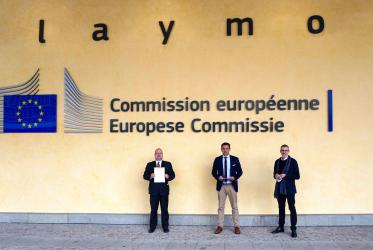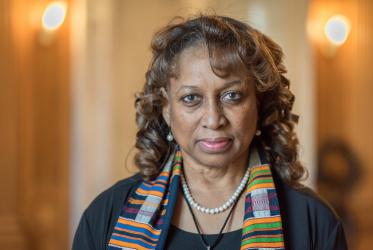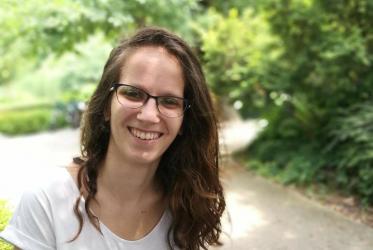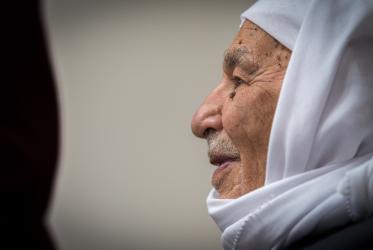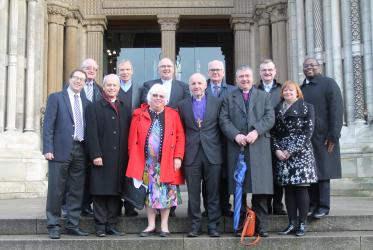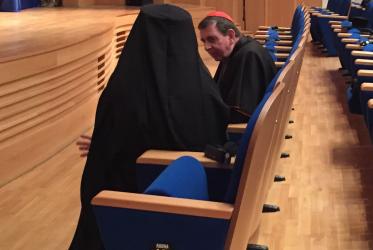Displaying 1 - 20 of 29
Ecumenical statement on migration received by European Commission
25 September 2020
The cry of the Papuans in Indonesia
14 November 2019
Christians in China warmly receive WCC delegation
12 January 2018
In Lebanon, refugees face hardship - but find hope
16 March 2017
USA Racial Justice Accompaniment Visit
18 April 2016
Fleeing from – rather than to – a place
10 February 2016
WCC delegation visits north Ireland and border barriers
02 December 2015
Cardinal Kurt Koch tells WCC News: We have to deepen our solidarity
05 November 2015

